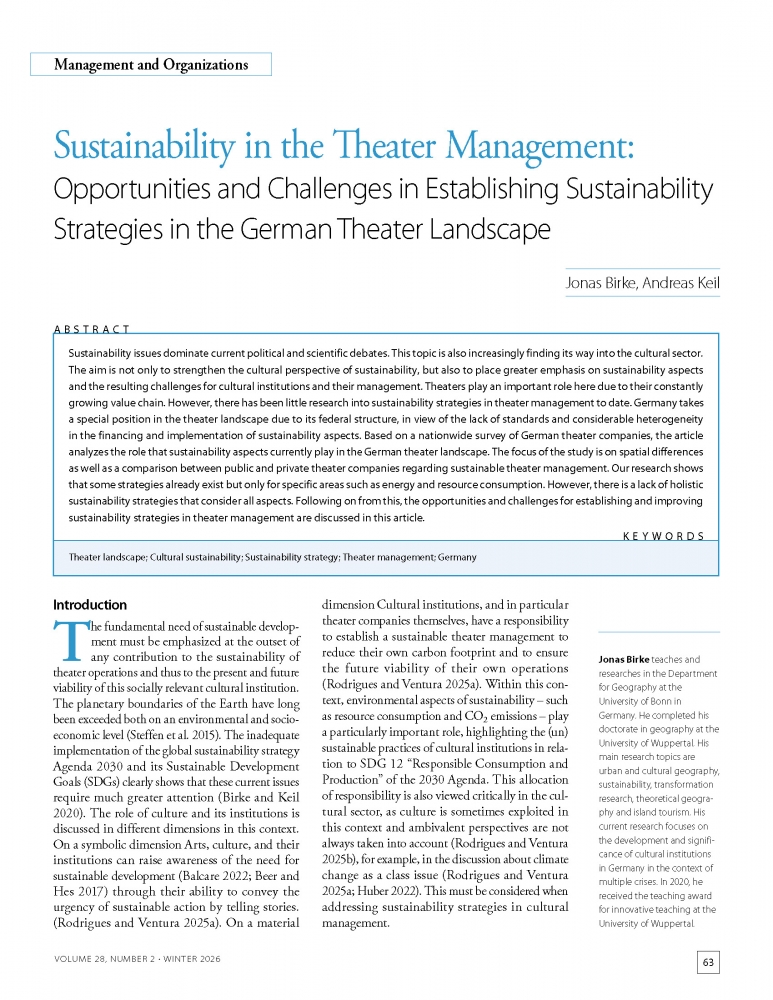Sustainability in the Theater Management: Opportunities and Challenges in Establishing Sustainability Strategies in the German Theater Landscape
Product: Article
$21.00 CA
Jonas Birke, Andreas Keil
Jonas Birke teaches and researches in the Department for Geography at the University of Bonn in Germany. He completed his doctorate in geography at the University of Wuppertal. His main research topics are urban and cultural geography, sustainability, transformation research, theoretical geography and island tourism. His current research focuses on the development and significance of cultural institutions in Germany in the context of multiple crises. In 2020, he received the teaching award for innovative teaching at the University of Wuppertal.
Andreas Keil has been Professor of Geography and its Didactics with a focus on social geography at the University of Wuppertal since 2009. He completed his doctorate in 2000 at the Gerhard Mercator University of Duisburg and his habilitation in 2007 at the University of Dortmund. His main research interests are education for sustainable development (ESD), sustainable development/transformation research/Agenda 2030, social-geographical urban research, and social geography of rural areas.
ABSTRACT
Sustainability issues dominate current political and scientific debates. This topic is also increasingly finding its way into the cultural sector. The aim is not only to strengthen the cultural perspective of sustainability, but also to place greater emphasis on sustainability aspects and the resulting challenges for cultural institutions and their management. Theaters play an important role here due to their constantly growing value chain. However, there has been little research into sustainability strategies in theater management to date. Germany takes a special position in the theater landscape due to its federal structure, in view of the lack of standards and considerable heterogeneity in the financing and implementation of sustainability aspects. Based on a nationwide survey of German theater companies, the article analyzes the role that sustainability aspects currently play in the German theater landscape. The focus of the study is on spatial differences as well as a comparison between public and private theater companies regarding sustainable theater management. Our research shows that some strategies already exist but only for specific areas such as energy and resource consumption. However, there is a lack of holistic sustainability strategies that consider all aspects. Following on from this, the opportunities and challenges for establishing and improving sustainability strategies in theater management are discussed in this article.
KEYWORDS
Theater landscape; Cultural sustainability; Sustainability strategy; Theater management; Germany
